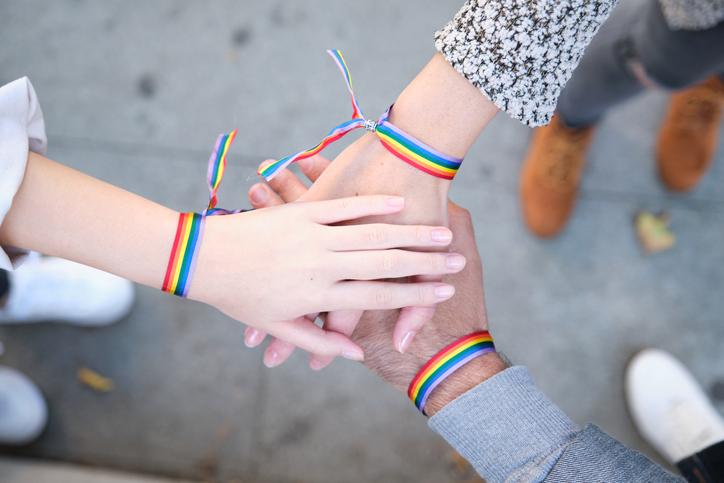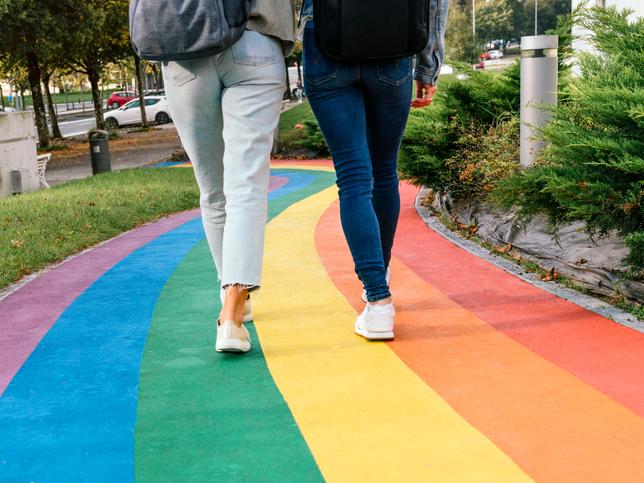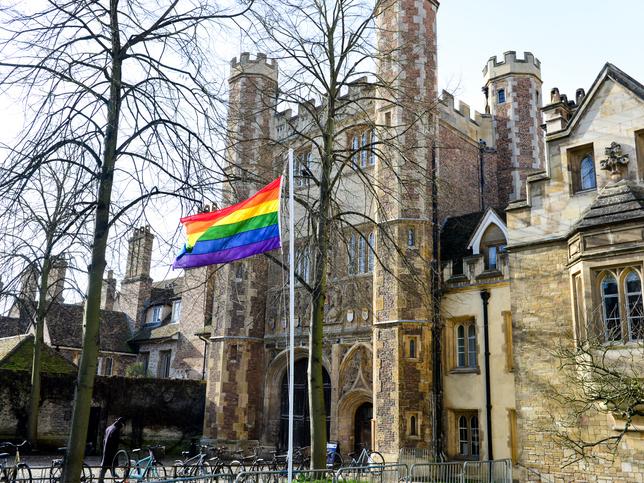
What LGBTQ+ allyship means in academia
Being a queer person who very much appreciates allyship and who tries to be a good ally to others has taught me a few things, says Lucas Lixinski

Allyship is a wonderful idea, thrown around a lot in social and workplace relations. There is something beautiful, important and human about helping those who are, by virtue of race, nationality, socioeconomic origin/status, ability, gender identity or sexuality, worse off on individual or systemic grounds. Academia, as a space devoted to making a better world, is an ideal laboratory for allyship – and a place where it should be performed often and vibrantly.
Allyship is also contested and difficult to do. When it comes to helping people there is a lot of subjectivity, as well as different perspectives on what the ally can do to help and what help the receiver actually wants. Being on both sides of that conversation (as a queer person who very much appreciates allyship and who tries to be a good ally to others, within and without the LGBTQ+ community) has taught me a couple of things, which I’d like to share.
The first thing I learned as an ally was the impulse to do good. Standing up for a good cause, speaking truth to power, using whatever privilege I have on someone else’s behalf is a euphoric and happiness-inducing sensation. The more, the merrier, that impulse says. Let’s all waltz in and help others.
- How LGBTQ leaders navigate a predominantly non-LGBTQ world
- THE podcast: career advice, LGBTQ+ in the academy and public speaking tips
- Supporting LGBTQ+ aspiring leaders in universities
The second thing I learned was to unlearn (some of) the first thing. Yes, it’s wonderful to want to help. Once I came out and realised I was not only going to be an ally with a saviour complex, it dawned on me that it was not the role of those seeking to help me (and consequently not my role in helping others) to label and define those being helped and their needs.
It was confronting, as an academic who spends a lot of time trying to define what is in the world around them, that it was not up to me to figure people out. This lesson is particularly important in LGBTQ+ contexts, where identities are often so fluid and intermixed – or, in my personal case, well-defined, because I find comfort in that definition.
The third thing I learned was fear. Fear of making mistakes in my eagerness to be an ally, of not being able to do the job in a way that was helpful and, even worse, of actually being an obstacle to the cause of those I served as an ally. Part of the fear stemmed from thinking of help in a specific way: one that was about me as the helper and focused on how good I would feel in fixing this one small problem in the present, but which never really zeroed in on the bigger issue that needed addressing. However, foregrounding those we want to help instead, even at the cost of our own visibility, can change the future.
So I learned to reel my saviour complex further in. I learned to listen. I learned that my privilege was only as good as its usefulness as a stepping stone for others’ voices – and never to replace those voices. I had to fight many of my instincts as a well-meaning and ambitious academic (that I understand these issues, that I know how to work the system, that I have “the answers”) and go back to being a student: to listen, to learn, to ask questions. It was a humbling experience – and one that fundamentally made me a better scholar. In the end, fear gave way to learning.
Most LGBTQ+ people I know will always be happy to answer questions about their perspectives on what they do and what their identities mean professionally to help educate an ally (but not necessarily their personal lives, so always preface personal questions with a version of “it’s totally fine if you don’t want to talk about it, but I was wondering...”). At the same time, do not treat the (few) LGBTQ+ people around you as your personal tutors. It’s probably more than fine to ask questions but best if they’re informed by some of your own independent study, so it shows you’re trying to be there for them and not just take from them for your own enlightenment. Try to learn and to listen.
And going back to the fear felt by potential allies: it’s OK if you get it wrong. LGBTQ+ people even get it wrong among themselves. The important thing is that you promptly apologise and commit to doing better next time around. As some of my colleagues and friends can sadly tell you, I have problems internalising and correctly using non-binary pronouns. I am working on it and (I think) getting better. But I still get it wrong at times, so I apologise and try harder next time.
So allyship is fun. It’s useful. It’s our duty as people with certain and varying amounts of privilege within academia. It’s also something we owe our colleagues, our students, the community at large. It can be challenging, because it forces us out of the usual modes of “helping” (and the paternalism that can come from it) towards help in a way that makes the ally disappear. But it is so worthwhile.
If you want to be an ally, ask us how to do better, try to do better, apologise when it’s not perfect, rinse and repeat.
Lucas Lixinski is a professor in the Faculty of Law and Justice at UNSW Sydney, Australia.
If you would like advice and insight from academics and university staff delivered direct to your inbox each week, sign up for the Campus newsletter.


